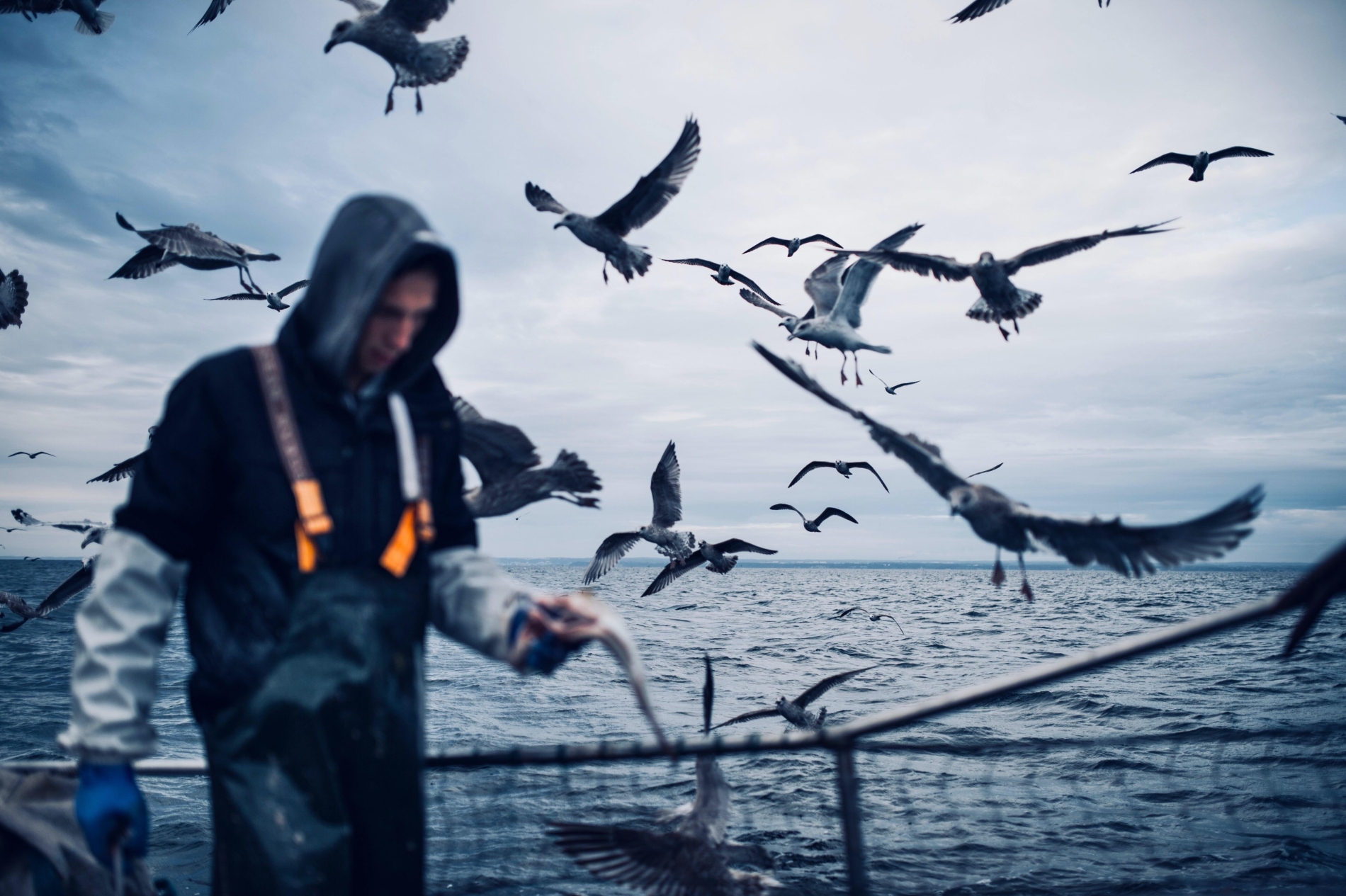“When one industry starts ruining things for another, it’s war.”
That’s what fisherman Tommy Pettersen says. He joins Hammerfest mayor Marianne Sivertsen Næss and social economist Caroline Wang Gierløff as guests of the podcast Kystpuls, to discuss coexistence between marine industries.
Feeling sidelined
The seas near Hammerfest have many users. The region’s natural environment offers excellent opportunities for value creation and employment, but in recent years conflicts have blossomed up among those whose lives and livelihoods depend on the sea. The fisheries industry is acutely aware of this.
“The sharpest conflicts are undoubtedly about use of space. Here in Hammerfest, we face challenges related to aquaculture, offshore wind turbines, and mining,” says fisherman Tommy Pettersen, who also leads West-Finnmark Coastal Fishermen’s Association.
He feels that the fisheries industry gets sidelined by other industries when sea sectors are allocated. As an example, Pettersen mentions the offshore wind farm that was being considered at Sandskallen.
“We found out that they’d planned to build the turbine towers in the middle of a spawning and netting area” says Pettersen. “If they’d been a bit smarter, they would have asked the fishermen for advice before making that proposal. I think it would be easier to avoid conflicts if other industries and authorities showed a bit more humility and respect for fisherfolk’s expertise and profession.”
Want more power at the local level
Several of the conflicts at sea arise between established industries, such as fishing, and new industries. Marianne Sivertsen Næss, mayor of Hammerfest, understands the fishermen’s frustration, but maintains that developing new industries is imperative.
“When I was growing up in the 1990s, the mood was pretty pessimistic,” Sivertsen Næss recalls. “A lot of people were moving away and there was little hope for the future. When the Parliament gave the go-ahead for natural gas extraction at Snøhvit, that was the turning point. Almost the same day people began moving to Hammerfest. Optimism was rekindled and many businesses were established here because of the petroleum industry. In parallel, we’ve made arrangements for aquaculture. When considering the possibility of building a wind park at Sandskallen in 2020, the town council made it clear that future planning work must ensure good cooperation and take into account the interests of the fisheries industry,” she concludes.
Nevertheless, the mayor feels that it is a problem that so many of the decisions that affect the marine industries in Hammerfest are made at a central level.
“Local authorities would like to have greater latitude to make decisions about allocating areas outside the baseline. As it is now, we’re just a consultation party and don’t have much say in the decisions, even though they affect local commerce and environment. We should have more influence over everything that impacts the lives we live here,” says Sivertsen Næss.
“You rarely hear these stories with happy endings”
Even though it is usually the conflicts that appear in news feeds, there are many instances of good coexistence, according to Caroline Wang Gierløff, a social economist who is a partner at Menon Economics.
“Some of those conflicts are quite intense, especially when they’re about negative activities or detrimental effects that one industry has on other industry’s environment and resources. But if you look at the big picture, you’ll find many positive interactions between the various marine industries every day. You rarely hear these stories with happy endings,” says Gierløff.
She also highlights new possibilities for use of sea areas.
“At present, our use of the sea is a kind of parallel existence. We haven’t explored the possibility of existing in those same areas. There are huge possibilities of using overlapping areas much better than we do now,” says Gierløff.
The Kystpuls podcast
Kystpuls is produced in collaboration with Både Og, and is a dissemination initiative from Centre for the Ocean and the Arctic. Advisor Ida Folkestad Soltvedt leads the project and is a presenter on the podcast.
“Fostering coexistence among marine industries is an important focus for Centre for the Ocean and the Arctic. We see that coexistence, value creation, and sustainability are closely linked, and that smoothly running coexistence gives the maritime nation of Norway a competitive edge. In this podcast we explore why it’s so important to avoid conflict. A sea of troubles is the last thing we want,” says Soltvedt.
The podcast (in Norwegian) is available here: https://pod.space/kystpuls/et-hav-av-konflikter

